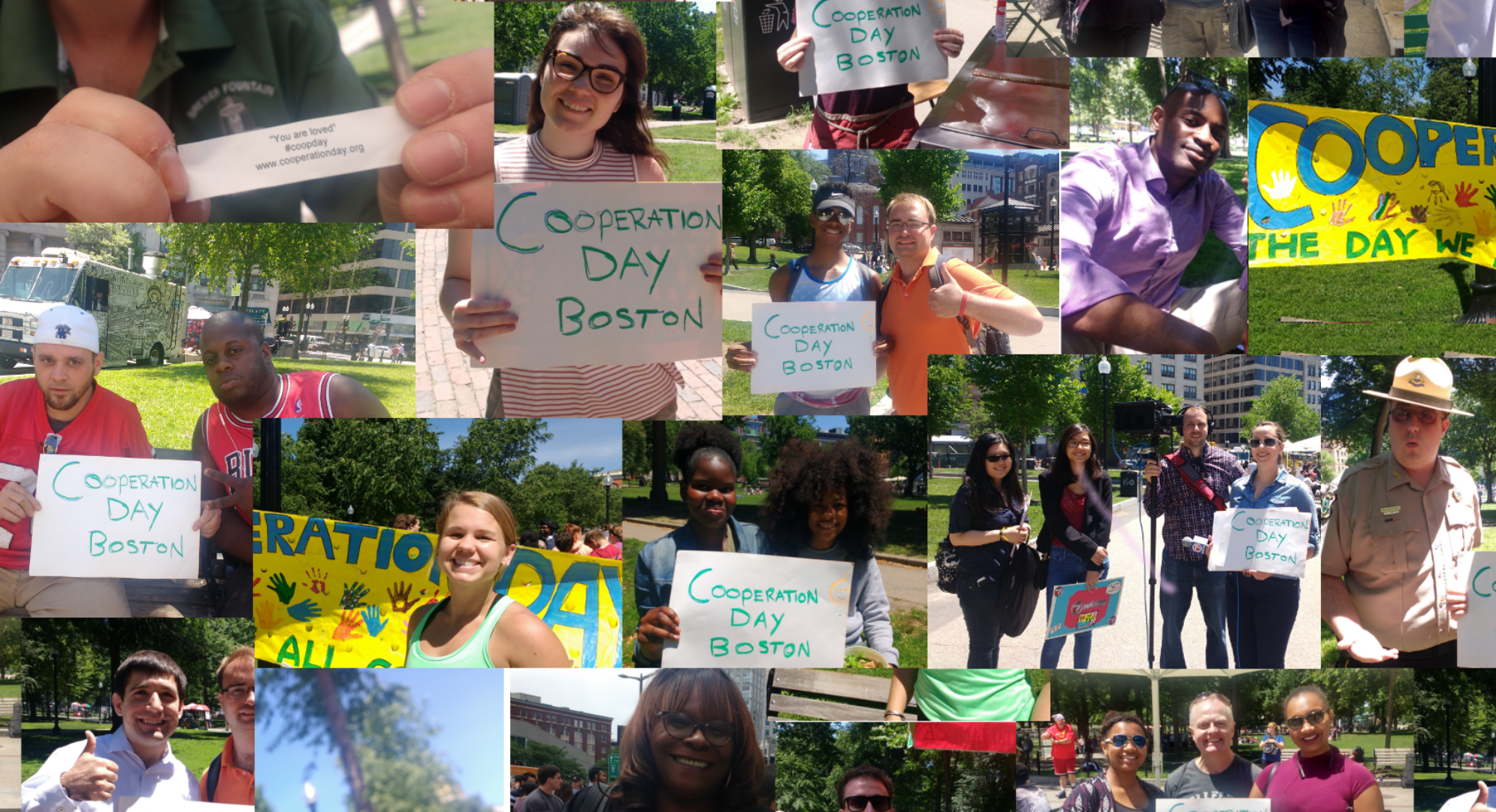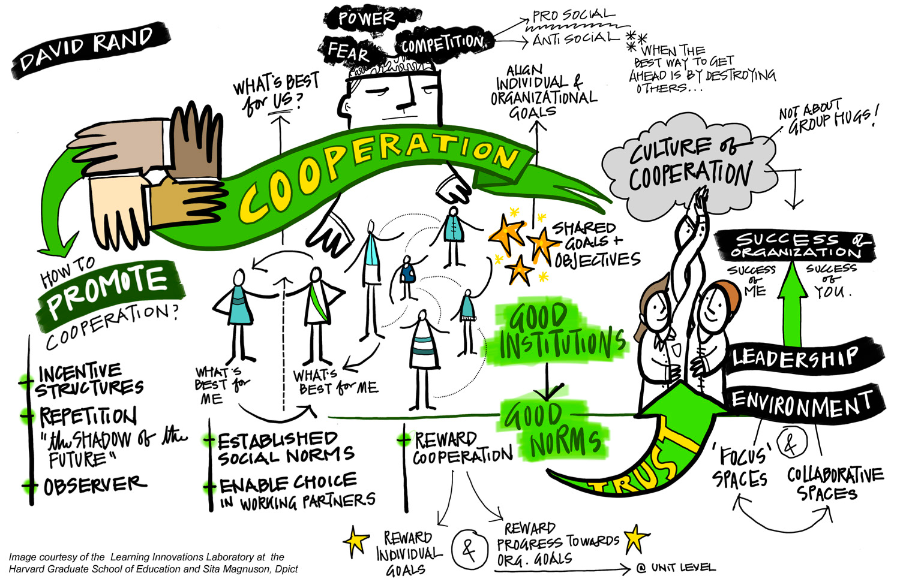The science behind Human Cooperation.
Cooperation Day is inspired by the scientific research into human cooperation, and the work of institutions looking at ways to bring that research to the public good.
See MIT’s Applied Cooperation Team.
Here is MIT scientist David Rand talk on Natural Cooperation.
Here is MIT Applied Cooperation research associate Erez Yoel talking about how we can engineer for cooperation and altruism.
Bibliography for the video and text of Cooperation Day
1. The RNA World: molecular cooperation at the origins of life by Paul G. Higgs and Niles Lehman. Published in Nature. Dated November 2013. Link to paper – “The RNA World concept posits that there was a period of time in primitive Earth’s history — about 4 billion years ago — when the primary living substance was RNA or something chemically similar. In the past 50 years, this idea has gone from speculation to a prevailing idea. In this Review, we summarize the key logic behind the RNA World and describe some of the most important recent advances that have been made to support and expand this logic. We also discuss the ways in which molecular cooperation involving RNAs would facilitate the emergence and early evolution of life.”
2. Evolutionary Explanations for Cooperation by Stuart A. West, Ashleigh S. Griffin and Andy Gardner. Published in Current Biology. Dated August 2007. Link to paper – “…cooperation can be found at all levels of biological organisation: genes cooperate in genomes, organelles cooperate to form eukaryotic cells, cells cooperate to make multicellular organisms, bacterial parasites cooperate to overcome host defences, animals breed cooperatively, and humans and insects cooperate to build societies. ”
3. From extortion to generosity, evolution in the Iterated Prisoner’s Dilemma by Alexander J. Stewart and Joshua B. Plotkin. Published in Proceedings of the National Academy of Sciences of the United States of America (PNAS). Dated July 2013. Link to paper – “While other researchers have previously suggested that cooperative strategies can be successful in such a scenario, Stewart and Plotkin offer mathematical proof that the only strategies that succeed in the long term are generous ones.”
4. Culture and the evolution of human cooperation by Robert Boyd and Peter J. Richerson. Published in Philos Trans R Soc Lond B Biol Sci. Dated November 2012. Link to paper -“All of the available evidence suggests that the societies of our Pliocene ancestors were like those of other social primates, and this means that human psychology has changed in ways that support larger, more cooperative societies that characterize modern humans. In this paper, we argue that cultural adaptation is a key factor in these changes.”
5. Cooperative behavior cascades in human social networks by James H. Fowler and Nicholas A. Christakis. Published in Proceedings of the National Academy of Sciences of the United States of America (PNAS). Dated March 2010. Link to paper. News report – “When people benefit from kindness they “pay it forward” by helping others who were not originally involved, and this creates a cascade of cooperation that influences dozens more in a social network.”

